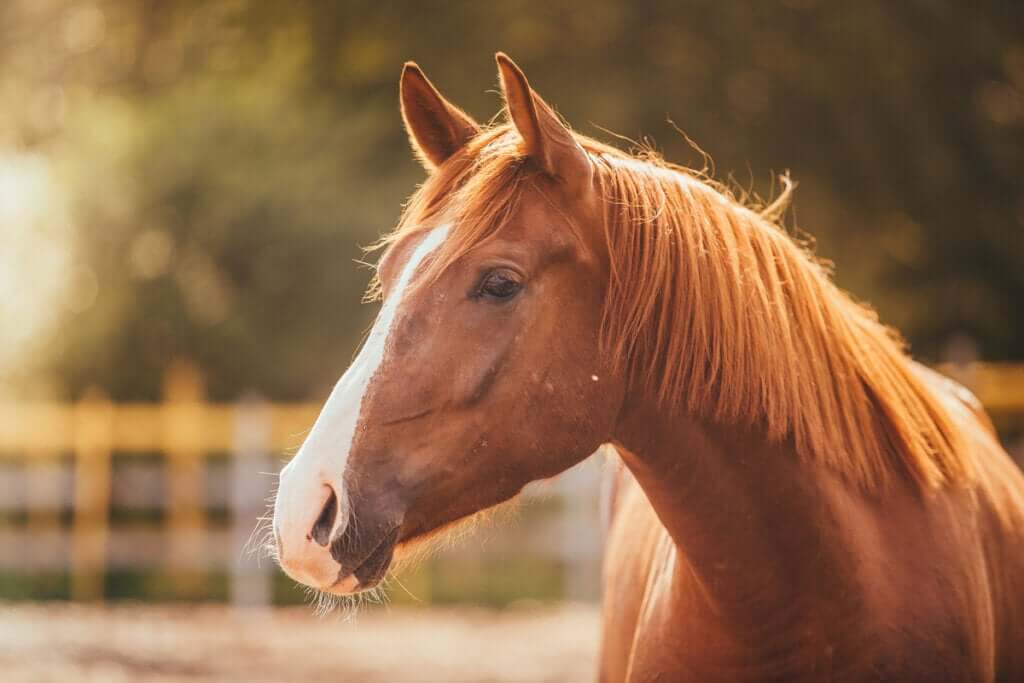Fear is a natural response that, in an evolutionary sense, has helped us to save ourselves from certain dangers, so it is common to feel respect for certain animals, the fear of horses does not seem very common, but there are people who feel an intense fear of these creatures that can even provoke a panic attack. In the latter case, we’d be talking about hypophobia.
These animals, which are for many beautiful noble beings and a symbol of strength, do not usually surround us daily, so the lack of predictability and knowledge about them can generate intense fear, however, phobias are irrational fears that have nothing . to do with a real threat.
- As with any phobia.
- Fear of horses generates an anxiety reaction.
- The most common symptoms are sweating.
- Tremors.
- Headache.
- Nausea.
- Dizziness.
- Tachycardia.
- Hyperventilation or even vomiting.
- Fear.
- Must have happened for at least six months.
These symptoms usually appear in the presence of the animal, or simply when thinking about it, that is, a person with intense fear of horses can be greatly affected just by looking at an image of horses, or even by hearing the story of a horse. someone they know interacting with them. Depending on each other’s experience, fear will be more or less great in the face of different stimuli.
As it is not common to find horses daily, this phobia does not usually affect the patient’s life, however, the person will try to avoid all the circumstances in which there is the possibility of finding a horse. Fear can be extended to other experiences, such as seeing a horse on a merry-go-round, so that the person can choose not to go to an amusement park.
In general, phobias develop from traumatic experiences related to the object of fear, in this case, for example, it can be a fall or a kick of a horse, this experience does not need to be lived by the person himself, fear can come. of the history of the event or of the presence itself as an observer.
As with other phobias, fear of horses can be inherited, i. e. a person may suffer from hypophobia because he has learned from his or her father or mother that horses are a danger, so since childhood he would have developed a behavior of avoidance and an idea of danger to horses.
Sometimes phobias also arise from a previous anxiety problem or disorder that can generalize fear and the feeling of danger to other stimuli. Another hypothesis is that, in the phylogenetic sense, the fear of some animals has been inherited to survive, although many other people do. don’t perceive it this way.
As in any other phobia, three lines of action are usually implemented in the intervention: cognitive restructuring techniques, systematic desensitization and relaxation, the first focuses on the configuration of the horse’s beliefs in a more adaptive and sometimes realistic way.
On the other hand, systematic desensitization focuses on the progressive exposure of the person to phybic stimuli, first, a list of all possible events related to the horse that the patient fears, subsequently, the events are categorized according to the level of anxiety they generate. With training in relaxation techniques, the person will be exposed to stimuli based on their location on a scale of emotional intensity.
If the last item on the list was to think of a stable full of horses, this thought will be worked on in a moment of relaxation to reduce anxiety, as soon as the phobia is overcome and the patient can think about the chosen topic without feeling fear. , it will go on to the next and so on.
This technique is very effective because it is based on elements that the patient himself has chosen, and can allow him to approach a horse and touch it, or even ride it.
In any case, to overcome fear of horses or another animal it is more appropriate to go to a psychologist, the intervention will not only reduce or end fear significantly, but also provide the patient with resources to face other phobias.

